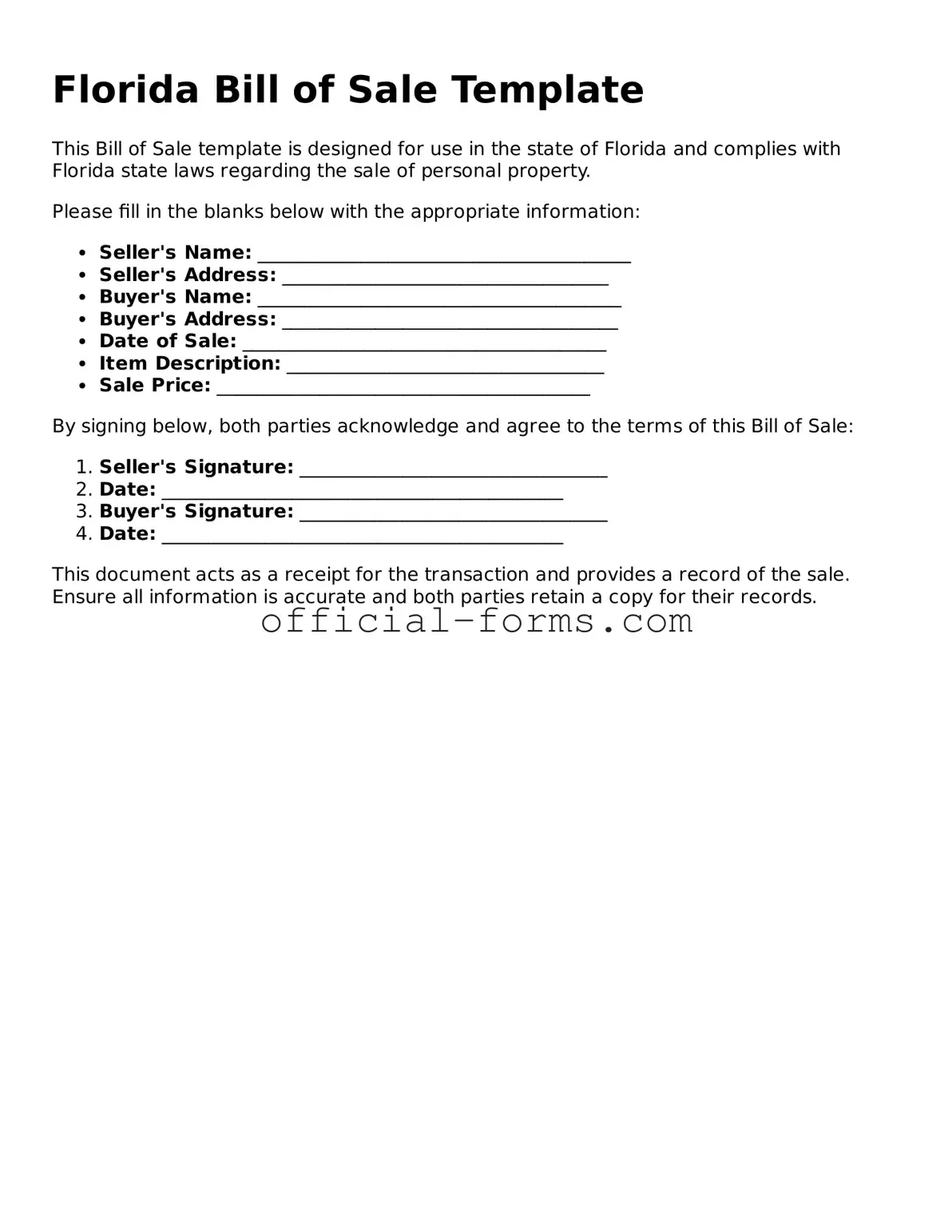Filling out the Florida Bill of Sale form can seem straightforward, but many people make common mistakes that can lead to confusion or complications down the road. One frequent error is failing to provide complete information about the buyer and seller. Both parties’ names, addresses, and signatures are essential. Omitting any of these details can render the document incomplete and potentially unenforceable.
Another mistake involves inaccurate vehicle or item descriptions. When detailing the item being sold, it’s crucial to include the make, model, year, and identification numbers. Leaving out any of these specifics can lead to disputes about ownership or the exact item being sold. Always double-check this information before finalizing the document.
Many people overlook the importance of the date of the sale. This date is vital as it establishes when the transaction occurred. If the date is missing or incorrect, it may create issues with the transfer of ownership or affect any warranties associated with the item.
Not including the sale price is another common error. The Bill of Sale must clearly state the amount paid for the item. This figure is important for tax purposes and can also serve as proof of the transaction. Ensure that this information is accurate and clearly written.
Some individuals forget to sign the document. Both the buyer and seller need to sign the Bill of Sale for it to be valid. Without these signatures, the document may not hold up in legal situations, leaving both parties vulnerable.
Another mistake is not having a witness or notary present during the signing. While not always required, having a witness can add an extra layer of security and credibility to the transaction. If the Bill of Sale is notarized, it can help prevent disputes about the authenticity of the signatures.
People sometimes use outdated forms. Laws and regulations can change, so it’s important to ensure that you are using the most current version of the Florida Bill of Sale form. Using an outdated form may lead to legal complications or the need to redo the process.
Failing to keep copies of the completed Bill of Sale is a mistake that can come back to haunt sellers and buyers alike. Always make sure to keep a copy for your records. This document serves as proof of the transaction and can be vital if any issues arise in the future.
Another common error is neglecting to check for any liens or outstanding loans on the item being sold. It’s essential to ensure that the item is free of any encumbrances. If there are liens, the buyer may not receive clear title, which could lead to significant problems later.
Finally, some individuals do not read the entire form before signing. It’s crucial to understand every part of the Bill of Sale, including any terms and conditions that may apply. Taking the time to read and comprehend the document can prevent misunderstandings and protect both parties involved.

